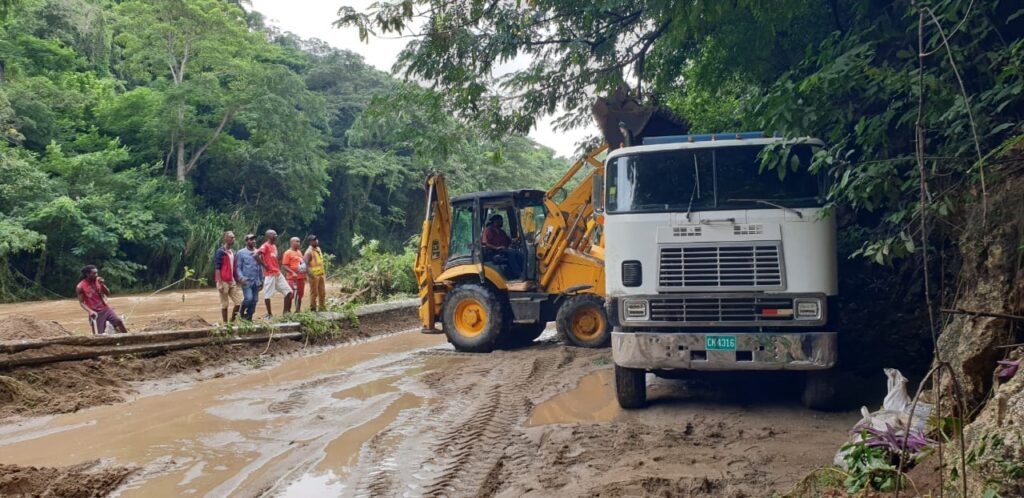
Every year, or at the very least every other year, there seems to be a natural disaster besetting Jamaica. Yet there is never sufficient space in the Budget to address it.
Tropical Storm Zeta, which ravaged the country last weekend, is the latest occurrence and the government once again finds itself financially strapped and unable to undergo any meaningful repair and rehabilitation operation.
The damage wrought on the country has been estimated to be around J$2 billion with many suspecting another J$2 billion could be added to that figure.
Prime Minister Andrew Holness announced in Parliament that the government has already gone through a second supplementary estimates and there is no additional funding, suggesting that ministries do some husbandry and pull from their already meagre resources.
“I recommend to all the ministers here to look in your budget very carefully to see what one can do in terms of reallocation to ensure that all Jamaicans who have been dislocated and severely impacted by these heavy rains, that there is some form of outreach to them.”

It is almost inevitable that a hurricane, tropical storm, drought even earthquake will plague the country, yet no foresight or preparation is made to mitigate the additional expense that will have to be borne by the state.
As it stands now, each member of parliament will receive just J$1.5 million from the Housing Fund to assist with much-needed repairs to homes in their constituency. There are homes that have sustained damage valued at more than that entire sum.

The National Works Agency (NWA) will receive J$1 billion from the government to address assistance with road repairs, drainage and so forth. A close eye must be kept on how these funds are utilised.
The Ministry of Agriculture says the damage to the sector could run close to J$2 billion. This comes at a time when it looks to pivot, becoming the sector of growth, powering the economy and make efforts to reduce Jamaica’s US$1.2-billion food importation bill.
Exacerbating budgetary concerns is the COVID-19 virus and the toll it is taking on Jamaica with no end in sight. It was not foreseen, being a once in a century event- storms and hurricanes are what the country truly has to live with.
The prime minister has said it will cost US$1 billion to upgrade the country’s drainage network. Sandy Gully needs upgrading, which is expected to come in at J$1 billion, and the cost to put in place adequate drainage for Marcus Garvey Drive is estimated to be J$1.2 billion.
The burdens placed on the administration today (not of its own making) are tremendous and it is already clear that contending with COVID-19, means the wide scope of plans outlined just weeks ago (reduce unemployment, make the transition to a digital economy, look to local energy supplies, extract more revenues from tourism, reform education) may be a bridge too far already.
What has to be made a priority is Jamaica’s woefully inadequate infrastructure which was clearly exposed last weekend. It may behoove the government to make this a major part of what it wants to address during its current term. This will inure to the benefit of all citizens and will not be a recurring impediment to future governments’ budgetary capacity.
The Romans, the English and the Spanish put in place infrastructure wherever they administered that has lasted centuries.
Jamaica cannot be characterised by shoddy workmanship and poor infrastructure that is detrimental to its development.
With climate change a reality, storms, hurricanes and other damaging events wrought by nature are in Jamaica’s future and preparations must be made for them.
Countries in Asia and the Pacific are even more prone to these occurrences. According to the United Nations, between 2014 and 2017, countries there, including the Philippines, saw 55 earthquakes, 217 storms and 236 cases of severe flooding impacting 650 million people causing 33,000 deaths.

They moved to put in place contingency plans – more specifically contingent disaster financing.
“Contingent Disaster Financing (CDF) will provide a quick and flexible source of funds for developing member countries affected by disasters until funds from other sources become available. It will also help with greater preparedness and risk management in developing member countries prone to disasters,” said Director General of the Asia Development Bank Tomoyuki Kimura.
US Ambassador to Jamaica Donald Tapia has made it clear that Jamaica cannot expect any financial aid subsequent to a natural disaster if it goes ahead and solicits help from China in implementing 5G infrastructure. Over the last decade China has carved out a reputation for a number of substantial infrastructure projects throughout the world. Jamaica may have been inclined to look its way for help with roads, drainage, river embankments and so forth. It will have to think twice now after Ambassador Tapia’s warning.
“Policy success against disasters, however, requires government to act in advance of loss, rather than waiting until after it has occurred.”
Budgeting For Disasters: Focusing on the Good Times, a policy paper
Budgeting For Disasters: Focusing on the Good Times by Marvin Phaup and Charlotte Kirschner, a paper written for the OECD Journal back in 2010, gives some insight into the approach Jamaica now needs to take.
“Policy success against disasters, however, requires government to act in advance of loss, rather than waiting until after it has occurred. By waiting, government loses the option to sustain consumption by saving pre-disaster production and income and by reducing losses from the event.
“After the loss it can only provide assistance by redistribution from those who did not suffer the loss or by borrowing. In both cases, because of its power to tax, government may have an advantage over private reliance on altruism and private credit.”
The paper goes on to say that post-disaster remorse is a rational reaction to failures to finance the expected cost of relief and recovery during the good times and to adopt more risk-reduction measures.
“Accordingly, proposals for ex ante budgetary relief and recovery are more likely to be considered in bad times than in good.”







Comments